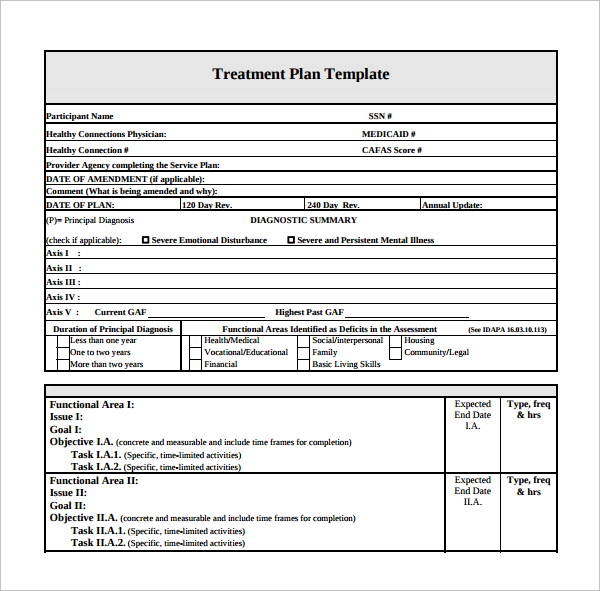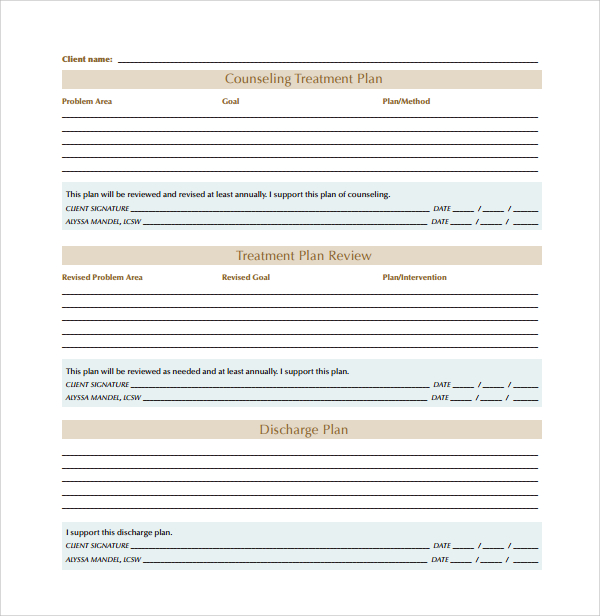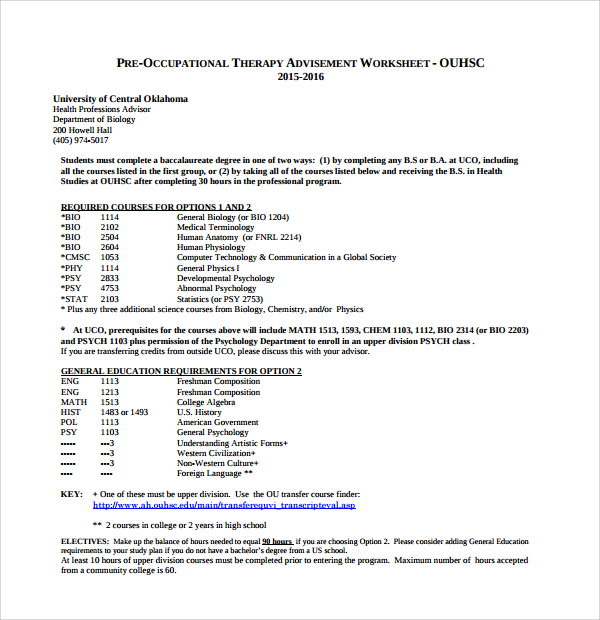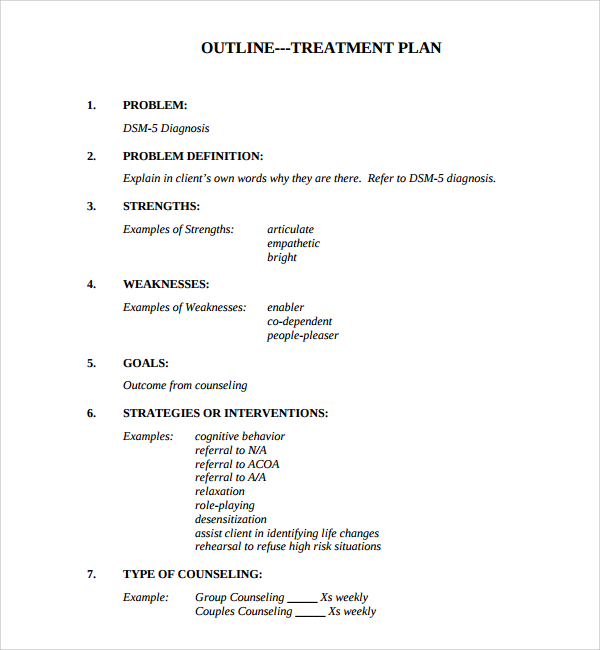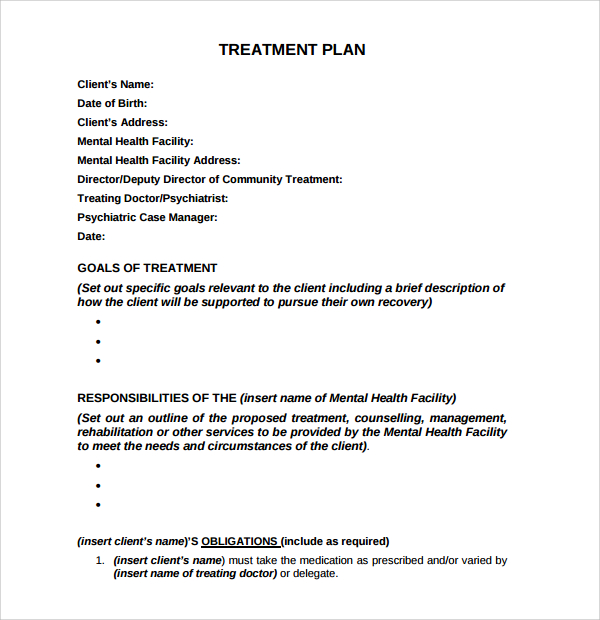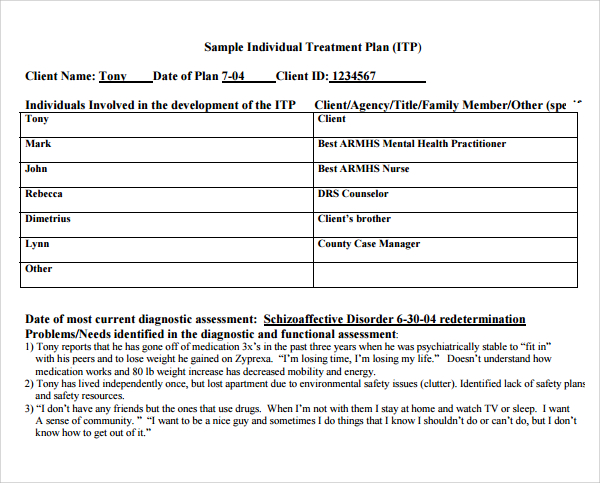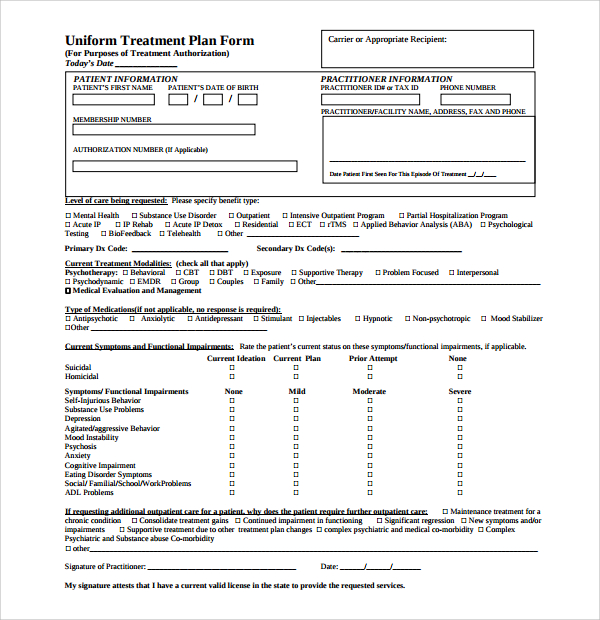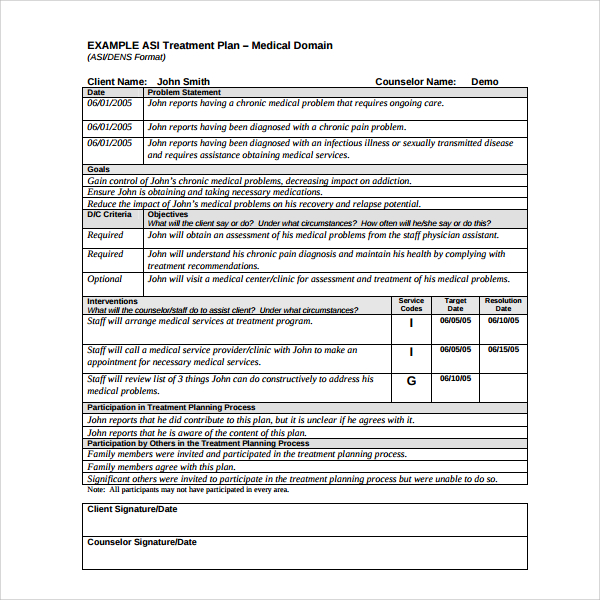Every kind of medical professional needs a strategy to combat whatever afflictions and conditions they encounter in their patients. Just like how companies have business plans or how tech companies have a technology plan, a doctor requires the use of a treatment plan. If you’re in the market for one, then we got you covered. In this article, we have not only useful information that you can use but also some of the best examples of a professional treatment plan template.
FREE 17+ Sample Treatment Plan Templates
1. Treatment Plan Template

2. Generic Treatment Plan Template
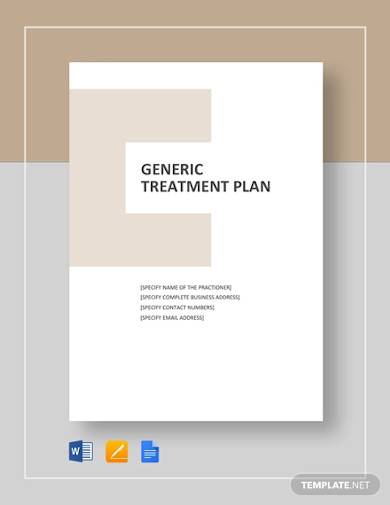
3. Skin Care Treatment Plan Template

4. Patient Care Plan Template

5. Dental Treatment Plan Template

6. Individual Treatment Plan Template

7. Counseling Treatment Plan Template

8. Free Sample Treatment Plan Template

9. Free Editable Treatment Plan Template

10. Free Simple Treatment Plan Template

11. Mental Health Treatment Plan Template
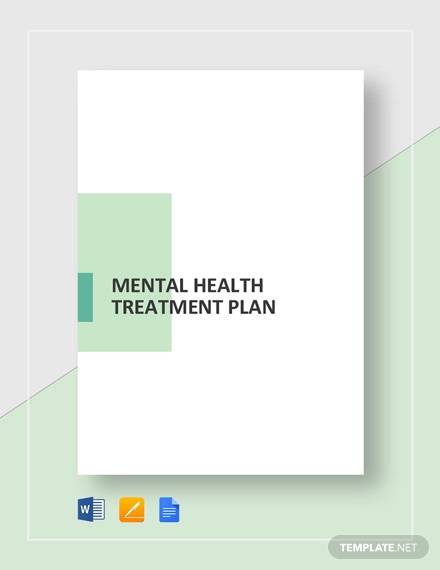
12. Mental Health Treatment Plan Template
13. Counseling Treatment Plan Template
14. Occupational Therapy Plan Template
14. Treatment Plan Example
15. Risk Treatment Plan
16. Sample Individual Treatment Plan
17. Uniform Treatment Plan Form
18. Treatment Plan Template Download
What Is a Treatment Plan?
A treatment plan is a medical document prepared by doctors and therapists for the benefit of their clients or patients. It will outline the specific diagnosis of the patient, as well as what needs to be done in order to help him or her towards recovery. There are many specific uses for a treatment plan, and therefore, also just as many variations. For example, there is a treatment plan for depression and a dental treatment plan. Other mental health variants may include a counseling treatment plan or a mental health treatment plan.
How to Write a Treatment Plan
Medical professionals are trained to be systematic with their medical evaluation and treatment plans so that there is no wasted time or action on their part. As convenient as it may be to download a blank treatment plan, a treatment plan sample, or a treatment plan template, it just isn’t viable for some people. Those who wish to start from scratch can do so with the help of the following steps:
Step 1: Come Up with an Overview
An overview of a treatment plan is similar to an executive summary of a company’s business plan. Basically, this provides a general outlook of the present situation, what the doctor intends to do to treat the patient, and so on. Details here will include the patient’s name, medical history, symptoms, and others.
Step 2: Outline the Specific Steps
This is where the specific details of the plan will be written down. Among the most vital bits of information included here would be the treatment plan goals and objectives, which would be part of goal attainment. Part of what needs to be placed here are the things that the doctor and the patient need to accomplish, and the timeframe to accomplish it. Take note that this step will involve technical notes such as proper medicine names and step-by-step procedures going forward.
Step 3: Indicate the Progress Notes
This is where the medical professional will mark down what’s been going on since the treatment began. That means this part of the plan is going to be filled up on a periodic basis. Appointment schedules with the patient will be documented, as well as what went on during each of these visits. The progression of his or her condition will also be meticulously noted down.
Step 4: Wrap Up with Findings, Conclusions, and Recommendations
The title of this last step basically sums it up. Once the patient has recovered, the medical professional will include this part at the end to make last-minute notes on how effective the treatment plan was. This will also serve as a place to note down recommendations for the patient going forward as he or she continues in recovery, or in more extreme cases, remission. A medical prescription may also be included.
FAQ’s
What should be included in a treatment plan?
One of the first things to include in any treatment plan is the personal information of the client. Next comes the diagnosis of his or her condition. After that, there is an agenda outline of the prescribed treatment. Lastly, the plan will dictate how the outcomes of the treatment are measured as the patient continues with it.
What do you mean by a SMART treatment plan?
A SMART treatment plan is one that is outlined in a way that is specific, measurable, attainable, realistic, and timely. In other words, it is handled similarly to any SMART goal in the business world.
Why is a treatment plan necessary?
To help guide a patient through recovery, medical professionals need to assess the situation in a way that is strategic and progressive. Although some conditions heal on their own to some degree, one of the only ways to find out how well a patient responds to treatment is if it is outlined and planned out ahead of time. Behavior management plans may also become necessities for some patients.
Treatment plans, as you can tell, are nothing to scoff at. With these plans at any doctor or therapist’s disposal, lives can be saved and the quality of life for many patients can be improved by a large margin. Whether you decide to download a treatment plan example or make one on your own, know that you are now in an excellent position to do either one. So don’t waste any more time; act now and make lives better for other people!
Related Posts
FREE 9+ 30-Day Marketing Plan Samples in PDF | MS Word | Apple Pages | Google Docs
FREE 3+ Sales Team Action Plan Samples in PDF | MS Word | Apple Pages | Google Docs
Marketing Plan For Small Business Samples
FREE 7+ Fashion Business Plan Samples in PDF
FREE 10+ Sprint Planning Samples In MS Word | Google Docs | PDF
FREE 10+ Wedding Planning Samples in MS Word | Apple Pages | Powerpoint | PDF
FREE 9+ Monthly Study Planner Samples in PSD | Illustrator | InDesign | PDF
FREE 9+ Sample Curriculum Planning Templates in PDF | MS Word
FREE 10+ Teacher Development Plan Samples in MS Word | Google Docs | Apple Pages | PDF
FREE 10+ Basketball Practice Plan Samples in PDF
FREE 12+ School Business Plan Samples in PDF | MS Word | Apple Pages | Google Docs
FREE 7+ Client Strategic Plan Samples in PDF | MS Word
FREE 11+ Trucking Business Plan Templates in PDF | MS Word | Google Docs | Pages
FREE 7+ Small Hotel Business Plan Samples PDF | MS Word | Apple Pages | Google Docs
FREE 14+ Bakery Business Plans in MS Word | PDF | Google Docs | Pages

